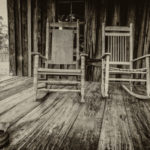How’s that for a triple play? Andrew Bacevich reviews Eric Miller’s new biography of Christopher Lasch, which, with Bacevich’s forthcoming Washington Rules: America’s Path to Permanent War, is at the top of my reading list.
Bacevich to Miller to Lasch

Bill Kauffman
Bill Kauffman is the author of eleven books, among them Dispatches from the Muckdog Gazette (Henry Holt), Ain’t My America (Metropolitan), Look Homeward, America (ISI), and Poetry Night at the Ballpark (FPR Books). His next book, Upstaters, is due from SUNY Press in 2026. He is a columnist for The American Conservative and The Spectator World. Bill wrote the screenplay for the 2013 feature film Copperhead. He is a founding editor of Front Porch Republic and has served as a legislative assistant to Senator Pat Moynihan, editor for various magazines and publishers, and vice president of the Batavia Muckdogs, a professional baseball team that was euthanized by Major League Baseball. He lives with his wife Lucine in his native Genesee County, New York.
More to Consider
-
Joel Miller on Books & Reading
Joel Miller of Miller’s Book Review Substack reads and reviews a prodigious number of books for this regular Substack. Joel formerly served as vice president of acquisitions for…
-
Agroecology, Eric Miller, and Manual Labor
“Bringing Farming Back to Nature.” Daniel Moss and Mark Bittman report on the encouraging growth of agroecology. (Recommended by Tom Bilbro.) “The Oak Tree Almanac.” This is a…
-
Brian Miller on Kayaking with Lambs
Brian Miller visits the porch to talk about his new book chronicling life on a Tennessee farm. Highlights 1:30 Bayou Bengal Volunteer farmer 5:45 A monastic text…






8 comments
Bruce Smith
Thanks for this post. I love Andrew Bacevich’s notion of the “sham conservatism” of the Republican Party masking alpha ape selfishness. He nails it beautifully.
Steve K.
“If you read any real leftist magazines (Dissent, The Nation) or other publications (Democracy Now!) you notice that the desire for acquisition is really secondary to the Leftist principle/ideology of breaking down capitalism and rethinking the capitalist nation-state.”
The desire there is more of acquisition of minds and souls by whatever means necessary. All else will follow from that, natch.
Mariella
I am amused that we are fighting over whether or not Pittsford would have been an affluent place or a “country village” in Lasch’s day. I suppose we can agree that it was a place that saw itself as middle class, even as it was destined to become one of the most white suburbs in a city known as the destination for slaves seeking their freedom. We can agree that Lasch was not worried about his property values being devalued.
But that aside, this article still bothers me in the way it reiterates Lasch’s ideology in suggesting that the Left and Right have similar, acquisitive goals. I heartily disagree, unless you refer to the Democratic Party as the Left.
If you read any real leftist magazines (Dissent, The Nation) or other publications (Democracy Now!) you notice that the desire for acquisition is really secondary to the Leftist principle/ideology of breaking down capitalism and rethinking the capitalist nation-state.
D.W. Sabin
“dynamic optimism” means never having to say you’re sorry. One can use the term interchangeably with “carnival barker”. It is what one uses to sell derivatives to a few saps while shorting them for one’s own portfolio and then declaring proudly that you are doing “Gods work”. Ho Ho Ho Hedge Lane Ho.
Perhaps Lasch “liked psychology and that stuff too much” because the prevailing human head trip is increasingly subsuming reality. We have come to believe that we can intellectualize reality. Not in terms of perceiving what goes on around us but in actually willing it and forming it and using our willed concoction as a bulwark against the messy imperfections, unseemly horror or relentless boredom of mere “reality”. The consumer juggernaut has turned this black urge into a form of pathological want tailor made for our philodoxy. When sitting in a rain of such things, one can tend to get wet and dwell on the soaked condition.
Advertising has been with us since the souks of the Levant. However, since the onset of the radio , advertising has increasingly molded perceptions in ways we have yet to understand. 50 years of television advertising….and advertising is the main event, not the dramas and comedies and “reality” it interrupts…. has successfully created two generations of credulous sots, able to believe virtually anything, including human omnipotence and a kind of magical cornucopia of endless baubles. The generations that existed prior to radio and television advertising are no longer with us. Hence the happy opinions of the cheerful optimist Mr. Brooks. Hence the many supporters of his kind of malleable boosterism. Hence a people that cannot see self-destruction when it slaps them in the face, spits in their eye and tells them they will like it. Columbus sailed out upon the flat earth and bumped into the islands off North America beyond the curved horizon. Now, Mr. Brook’s fellow positivist at the Positivists Daily, the New Yawk Times proudly crows about a flat earth again. Too much psychology is an understatement.
John Willson
Art Deco,
I grew up in Phelps NY, and I know that whole area very well. Pittsford was indeed a country village in the 1950s, and Avon, home of the horse, still is. My uncle Vincent Callahan was Genessee-Orleans man of the year a couple of times, my mother’s family is from Oakfield and Batavia, many of my cousins are still in the area. Lasch was a real newcomer to the area that my family has lived in since the early 1800s. I don’t speak from ignorance, even though I may not always be right about a brilliant man.
Art Deco
even if he did live in Pittsford NY
Were you under the impression that Pittsford is a country village?
Dr. Lasch and his family moved to the Genesee Valley ca. 1970. I believe they lived in Avon, N.Y. until about 1978 and then in Pittsford. Pittsford is and has been for some decades the most affluent suburb of Rochester. I think you would find the vast bulk of Dr. Lasch’s colleagues on the U of R faculty would be found in the 19th Ward, the 12th Ward, Corn Hill, or Brighton. Pittsford and Avon are unusual places for a professor to make his home, though for very different reasons.
John Willson
Well, finishing the Drunk is at the very top of my reading list, but these two must come close after. I’m still very suspicious of Lasch, because even if he did live in Pittsford NY he liked psychology and that stuff too much. And if I remember correctly his idea of spirituality didn’t have much to do with religion. Bacevich is a ramrod straight tough guy, and looks you in the eye, and I like his earlier books. He probably is a baseball fan.
Russell Arben Fox
Ack! I must read this. Thanks for the heads-up, Bill!
Comments are closed.